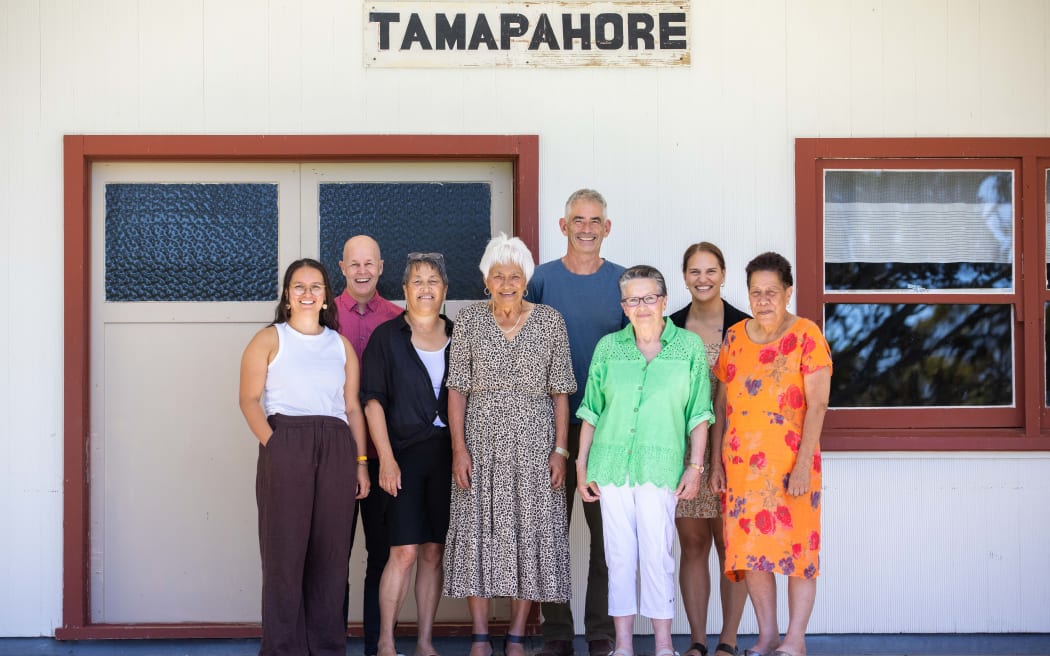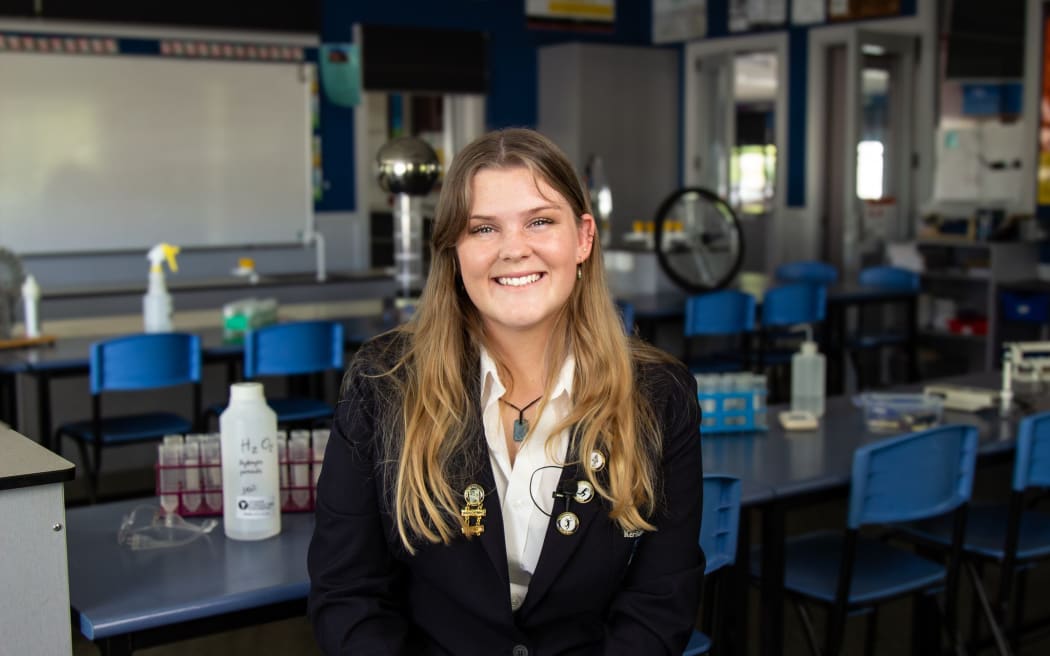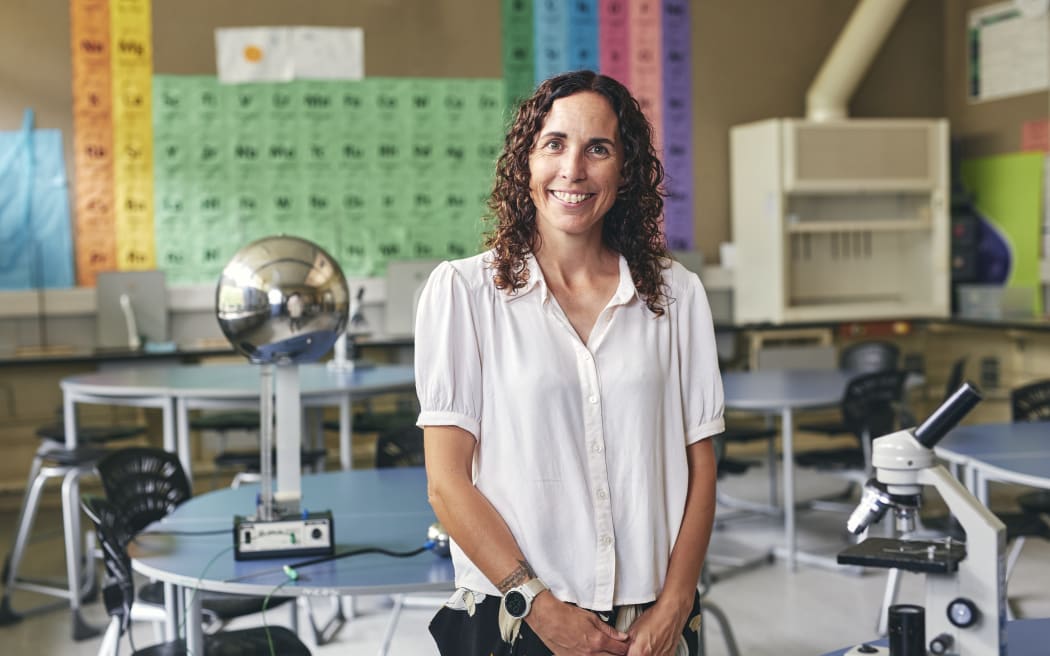
The Hereditary Diffuse Gastric Cancer team won the Prime Minister’s Science Prize – Te Puiaki Pūtaiao Matua a te Pirimia. Photo: Salina Galvan Photography / Royal Society Te Apārangi
Research to prevent inherited stomach cancer that has saved up to 450 lives since 1995 has taken out the Prime Minister's top science prize.
The partnership between members of the McLeod whānau and their community, geneticists from the University of Otago, and clinicians from Tauranga Hospital identified a stomach-cancer-causing genetic mutation.
Genetic testing and treatment as a result has saved about 400 to 450 lives since 1995.
Dr Samuel Mehr of University of Auckland and Harvard University has won the Emerging Scientist Prize for research into how humans perceive and produce music.
Professor Ben Kennedy took out the Science Communication Prize for his work informing communities in volcanic regions about volcano hazards, and how they can manage the uncertain risks of eruptions.

Sunny Perry of Kerikeri High School is the winner of the Te Puiaki Kaipūtaiao Ānamata Future Scientist Prize. Photo: Royal Society Te Apārangi
The winner of the Science Teach Award was Green Bay High School's Madeleine Collins, and Year 13 Kerikeri student Sunny Perry won the Future Scientist Prize.
Perry conducted an original research project on soil which is naturally rich in iron sulphides in Northland, identifying risks for humans, biodiversity, and infrastructure.

Dr Samuel Mehr of The Music Lab won the MacDiarmid Emerging Scientist Prize for his work on how humans perceive music. Photo: Matt Crawford / Royal Society Te Apārangi
The awards were presented in Wellington by Prime Minister Christopher Luxon and Science, Innovation and Technology Minister Judith Collins.
"These awards do more than reward excellence in research, teaching and science communication - they recognise the brilliant minds inspiring and achieving a better future for New Zealand," Luxon said.
"It's a privilege to celebrate these incredible people and projects. As well as being lifechanging in some cases, their work is critical to the growth of our science, innovation and technology sector."

Madeleine Collins of Green Bay High School in Auckland won the Science Teacher Prize. Photo: Matt Crawford / Royal Society Te Apārangi
Collins said she was proud and excited about the future possibilities in science, innovation and technology.
"Congratulations to all award winners. From collaborating with communities to captivating classrooms, they show us why science matters and what can be achieved with commitment, curiosity and courage."




